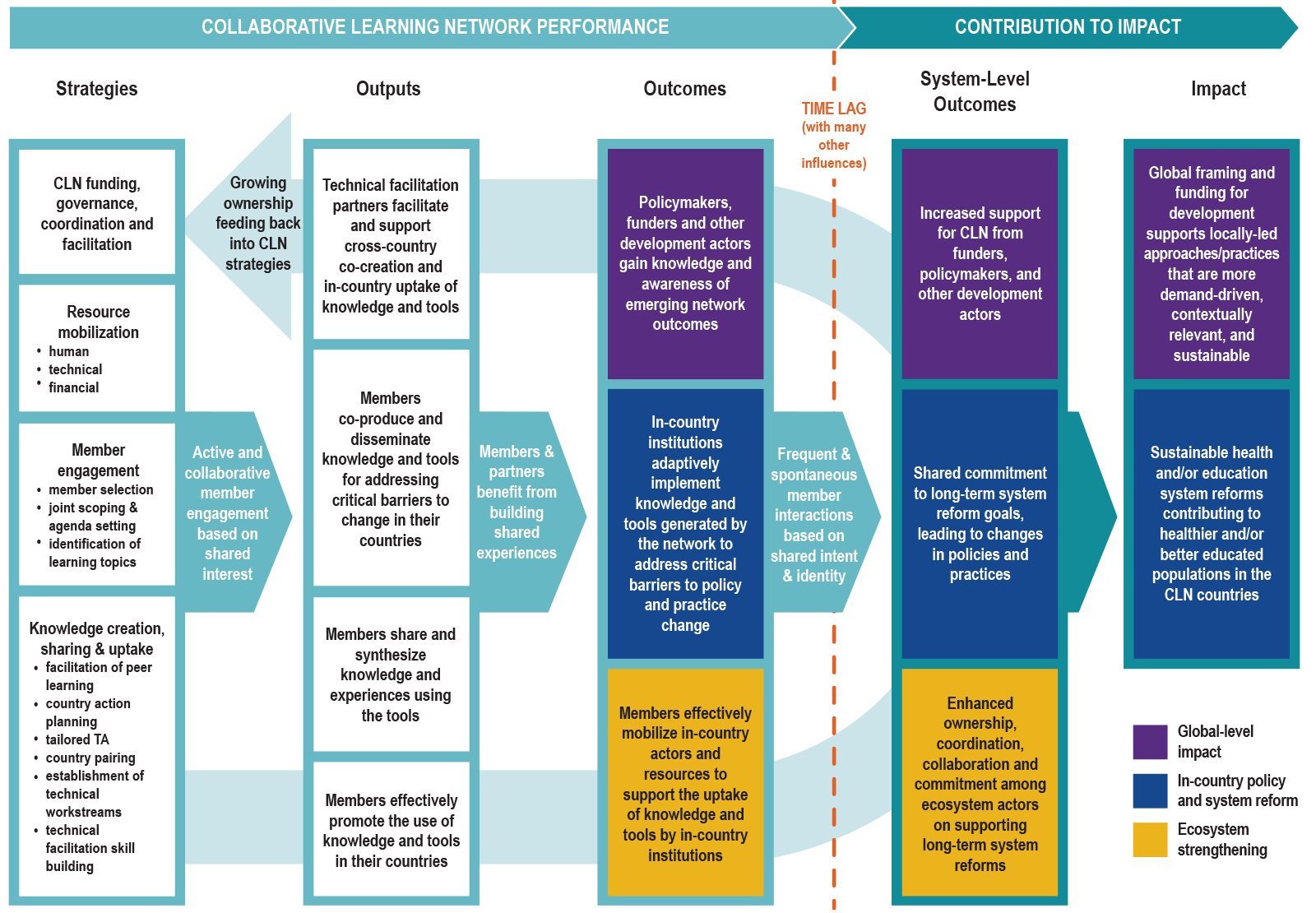Toolkit Home / Topic 03: The Collaborative Learning Theory of Change
Topic 03
Sign up for our monthly newsletter R4D Insights to get the latest tools, resources, and news in global development.
Ultimately, Collaborative Learning Networks (CLNs) seek to contribute to long-term systems strengthening and improvements in development practice. The Theory of Change for CLNs is that effective CLN performance leads to (1) strengthened leadership and capacity of its members; (2) strengthened communities and ecosystems of continuous support for change agents; (3) new knowledge and global public good products that are adapted and implemented at the country-level (while also increasing global knowledge and awareness), ultimately contributing to longer-term systems improvements for healthier, better educated people.
These outcomes are achieved if the CLN functions effectively. Effective functioning requires successful strategy implementation for member engagement; knowledge creation, sharing and uptake of knowledge; CLN measurement and learning; developing strong partnerships; and resource mobilization. Network performance must be driven by active member engagement based on shared interest that evolves into shared experience, and ultimately, frequent and spontaneous member interactions based on shared intent and identity.
CLNs can also deliver short-term outcomes like individual knowledge gains, knowledge products, and community-building. These early results of CLNs are important stepping-stones to longer-term systems-level and field-building impacts that can take 3–5 years or more to engender.

The Theory of Change for CLNs was first inspired by R4D’s work to co-develop a JLN Theory of Change with JLN members and partners. R4D later updated and refined the Theory of Change with feedback from the Linked Immunisation Action Network and Strategic Purchasing Africa Resource Center. Through an Organizational Effectiveness Grant by the Hewlett Foundation, R4D partnered with Collaborative Impact to refine the CLN Theory of Change and develop a MEL toolkit.
Check out our free, open-access e-course to gain a better understanding of Collaborative Learning methods and develop the necessary skills to facilitate the Collaborative Learning process effectively.